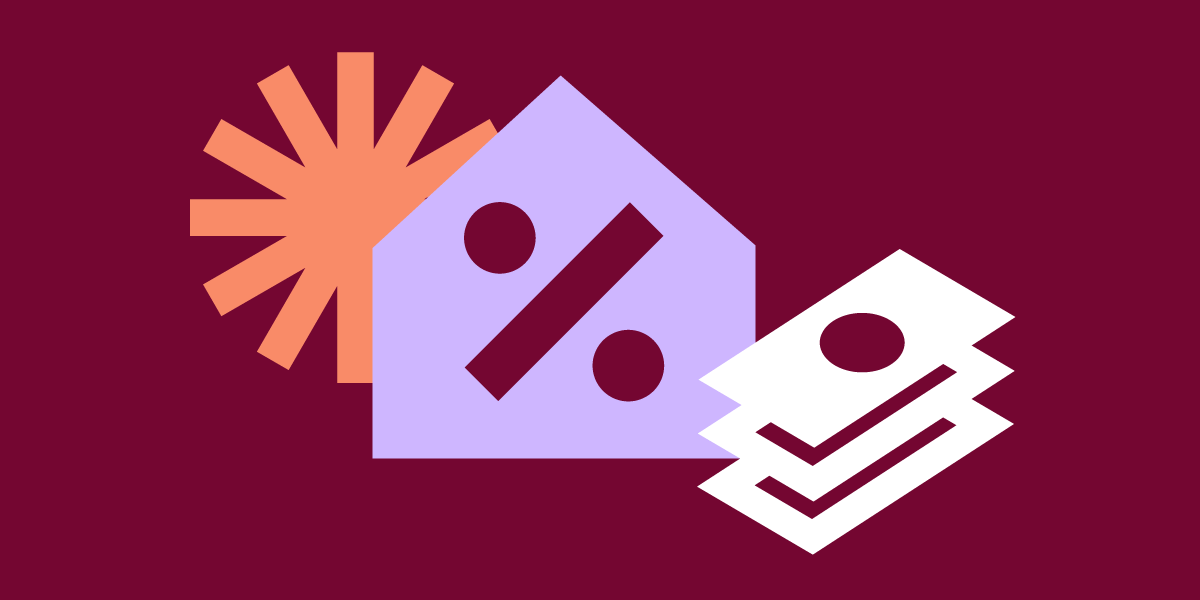One of the goals of selling a home is usually to make money, but there are costs of selling a home, too. Here’s a breakdown — including the tax implications of selling a home — so you can figure out how much you’ll need, and if you’re ready to sell your home.
The costs of selling a home
-
Repairs
Your goal is to make your home as appealing as possible to buyers, so make sure that an off-kilter cabinet door doesn’t make them wonder what else might be wrong. The amount of this investment will vary by home, but you’ll want your place to be as free of chips, scratches, and dents as possible, and that all of its systems and appliances are in working order.
-
Upgrades
The best return on your home improvement investment is for small, attention-grabbing things, like fresh paint and new cabinet hardware. Big upgrades, like a kitchen overhaul, might impress buyers and help your home sell faster, but you’re likely to spend thousands more than you’ll recover when you sell. Your real estate agent can be a great source of information about what minor upgrades might help your home sell quickly.
-
Staging and cleaning
Cleaning and staging a house makes it look like a showroom—and helps buyers envision themselves in the space. You can DIY both of these things, but they do take considerable time and effort.
If you hire professional cleaners, you can expect to spend between $200 and $400 for a deep clean, depending on the size of your home. Staging, which is essentially arranging your furniture and other belongings in an inviting way, can be a considerable investment. A consultation can cost between $300 and $600, and a three-month contract can cost up to $7,000 or more.
-
Storage or housing overlap costs
Whether you hire a professional stager or do it yourself, you’ll learn that a well-staged house doesn’t have any extra stuff in it. All of your attic and basement boxes, extra clothes, personal items, and a lot of your furniture will need to go, and if you’re still living in your home, that could mean you need a storage unit. You can expect to pay around $50 to $200 a month for a storage unit depending on its size and where you live.
If you’ve already moved into your next home, you won’t have to worry about a storage unit, but you will have two sets of housing bills, including your mortgage payments, utility bills, home insurance, and property taxes.
-
Post-inspection repairs and other concessions
The buyer will send a home inspector to review your home, and based on their findings, they may ask you to make some fixes around the house, or give them a break on the sale price. In some markets, experts recommend a seller hire an inspector to examine the home before it’s listed to make sure there are no surprises. That could be $300 to $500.
In a buyer’s market, it’s not uncommon for buyers to ask sellers for other concessions. During negotiations, a buyer might ask a seller to cover some of their closing costs (2% to 5% of the total cost of the home) or for other fees like their home inspection ($300 to $500) or appraisal fees ($300-$400).
-
Seller closing costs
Sellers often pay 1% to 3% of the total sale price of the home in closing costs, which can cover:
- Prorated property taxes and HOA fees
- Attorney fees, if you have one
- Escrow fees, often $500-$2,000
- Title transfer tax (only in some states and cities, and rates vary by location)
- Title insurance, often $1,000-$4,000, which typically comes out of home sale profits
-
Real estate commission
Sellers are responsible for paying the real estate commissions for both their real estate agent and the buyer’s. This is typically between 5% and 6% of the home’s sale price, and it’s paid during closing.
-
Mortgage prepayment fee
You’ll likely use part of the purchase payment to cover the rest of your mortgage on the house you’ve sold. Some mortgages include prepayment fees for paying off your mortgage early. There are different types of prepayment fees and they vary by mortgage, but one example is having to pay 80% of the total interest you would have owed for the next six months.
-
One-year home warranty
In some markets, it’s common for sellers to purchase a one-year home warranty to cover any major fixes the home ends up needing. The rates for home warranties vary widely by house and location, but most sellers can expect to pay between $300 and $900.
-
Tax implications
As for the tax implications of selling a home, the major one is potential capital gains taxes — but it only applies in certain cases. If the home you’re selling is your primary residence and you’ve lived there for at least two of the last five years, you’re exempt from paying capital gains taxes on the first $250,000 in net profits (that’s after accounting for sale expenses)—and that’s if you’re single. If you’re married and file your taxes jointly, the first $500,000 in net profits are exempt. Over and above those numbers (or if the property isn’t your primary residence), you’ll pay capital gains taxes of 0%, 15%, or 20%, based on the amount of profit and your tax filing status.
Many of the costs of selling a home depend on how much you sell it for—and that depends on what it’s worth. Find out how to figure out how much your house is worth in our next guide.



